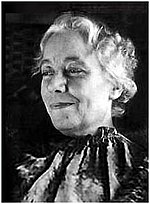Womb envy
These emotions could fuel the social subordination of women, and drive men to succeed in other areas of life, such as business, medicine, law, and politics.
In this they address the gender role social dynamics underlying the "envy and fascination with the female breasts and lactation, with pregnancy and childbearing, and vagina envy [that] are clues and signs of transsexualism and to a femininity complex of men, which is defended against by psychological and sociocultural means".
[11] In Personality Theories, Barbara Engler discusses the often unconscious and indirect ways that womb envy manifests.
"Womb envy, rather than being openly acknowledged by most males, has often taken subtle and indirect forms, such as rituals of taboo, isolation, and cleansing that have been frequently associated with menstruation and childbirth, the need to disparage women, accuse them of witchcraft, belittle their achievements and deny them equal rights.
"[13] In Eve's Seed (2000), historian Robert S. McElvaine extended Horney's argument that womb envy is a powerful, elementary factor in the psychological insecurity suffered by many men.
He coined the term non-menstrual syndrome (NMS), denoting a man's possible insecurity before the biologic and reproductive traits of woman; thus, womb envy may impel men to define their identities in opposition to women.
[18] Domna Stanton, for instance, drew from Jacques Derrida's work to support this argument,[18] particularly, the theorist's position that "the maternal, which is metaphorized as total being to substantiate a notion that can combat the paternal, represents only one aspect of potential female difference.
